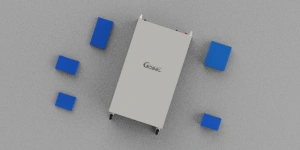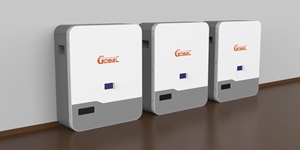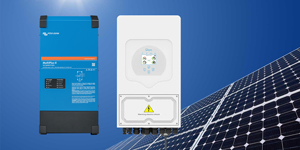Battery Pack Information Lookup
| SN | Capacity (Ah) | Max Charge Voltage (V) | Min Discharge Voltage (V) | BMS |
|---|---|---|---|---|
| GPEV314H241010R1006 | 325.00 | 57.99 | 40.50 | GP-PC200 BMS |
| GPEV314H250625R1002 | 327.00 | 58.01 | 41.27 | GP-PC200 BMS |
| GPEV314H241114R1006 | 326.00 | 57.83 | 41.67 | GP-PC200 BMS |
| GPEV280H240905R1020 | 306.00 | 57.45 | 42.68 | GP-RN200 BMS |
| GPEV280H240515R1016 | 304.00 | 57.97 | 41.77 | GP-PC200 BMS |
| GPEV314H250705R1001 | 325.00 | 58.01 | 41.59 | GP-PC200 BMS |
| GPEV314H250424R1011 | 330.00 | 57.28 | 41.09 | GP-PC200 BMS |
| GPEV314H250319R1018 | 331.00 | 57.97 | 41.80 | GP-PC200 BMS |
| GPEV314H250723R1004 | 325.00 | 58.01 | 41.73 | GP-PC200 BMS |
| GPEV280H241014R1002 | 307.00 | 57.87 | 42.16 | GP-PC200 BMS |
| GPRP280L231012R1305 | 290.00 | 57.70 | 40.11 | GP-PC200 BMS |
| GPEV314H250402R1018 | 332.00 | 57.88 | 40.47 | GP-PC200 BMS |
| GPEV280H240616R1018 | 306.00 | 57.98 | 40.83 | GP-PC200 BMS |
| GPEV314H250512R1020 | 330.00 | 57.77 | 42.02 | GP-PC200 BMS |
| GPEV314H241101R1014 | 325.00 | 57.57 | 41.91 | GP-PC200 BMS |
| GPEV280H230616R1016 | 304.00 | 57.44 | 41.32 | GP-PC200 BMS |
| GPEV280H240401R1018 | 303.00 | 58.00 | 43.73 | GP-RN200 BMS |
| GPEV314H250520R1013 | 333.00 | 57.99 | 40.93 | GP-PC200 BMS |
| GPEV280H230705R1001 | 302.00 | 56.62 | 41.25 | GP-PC200 BMS |
| GPHC280H240817R1003 | 296.00 | 56.95 | 42.66 | GP-JK200 BMS |
- Charging at a constant current of 100A, with a maximum charging voltage of 55.5V.
- Charging at a constant voltage of 55.5V, with a cutoff current of 40A.
- Charging at a constant current of 40A, with a maximum charging voltage of 58V.
- Document the maximum charging voltage when the voltage of a single cell reaches 3.65V.
- * Tested without deliberated active balance procedure.
- Discharging at a constant current of 100A.
- Document the minimum discharging voltage when the voltage of a single cell reaches 2.5V.
- * Please be aware that the charge/discharge curve and capacity of batteries can vary with changing temperatures throughout the seasons. In winter, tested capacity will be relatively lower.
| Cell Id | QR | Capacity (Ah) | OCV1 (mV) | OCV2 (mV) | OCV3 (mV) | RI1 (mΩ) | RI2 (mΩ) | RI3 (mΩ) | Thick (mm) | Test Date | |
|---|---|---|---|---|---|---|---|---|---|---|---|
| 1 | 326 | 04QCB76G27803JDBY0001171 | 312.49 | 2,793.4 | 2,785.4 | 3,296.0 | 0.1553 | 0.1557 | 0.1522 | 71.52 | 2024-04-25 |
| 2 | 328 | 04QCB76G38103JDBX0003130 | 312.57 | 2,793.3 | 2,784.8 | 3,295.9 | 0.1554 | 0.1566 | 0.1528 | 71.57 | 2024-04-25 |
| 3 | 332 | 04QCB76G27803JDBY0001221 | 312.56 | 2,792.8 | 2,785.0 | 3,295.9 | 0.1556 | 0.1575 | 0.1536 | 71.47 | 2024-04-25 |
| 4 | 342 | 04QCB76G38103JDBX0003281 | 312.58 | 2,793.0 | 2,784.8 | 3,296.1 | 0.1561 | 0.1547 | 0.1522 | 71.61 | 2024-04-25 |
| 5 | 350 | 04QCB76G38103JDBX0003243 | 312.45 | 2,792.4 | 2,784.0 | 3,296.1 | 0.1544 | 0.1549 | 0.1516 | 71.55 | 2024-04-25 |
| 6 | 352 | 04QCB76G27803JDBY0001315 | 312.49 | 2,794.8 | 2,787.6 | 3,296.0 | 0.1521 | 0.1528 | 0.1513 | 71.52 | 2024-04-25 |
| 7 | 353 | 04QCB76G27803JDBX0001134 | 312.45 | 2,793.5 | 2,784.8 | 3,295.9 | 0.1534 | 0.1534 | 0.1518 | 71.51 | 2024-04-25 |
| 8 | 356 | 04QCB76G27803JDBX0001110 | 312.50 | 2,792.7 | 2,785.0 | 3,295.9 | 0.1555 | 0.1567 | 0.1525 | 71.46 | 2024-04-25 |
| 9 | 360 | 04QCB76G38103JDBX0003122 | 312.57 | 2,792.8 | 2,783.9 | 3,295.8 | 0.1547 | 0.1540 | 0.1504 | 71.62 | 2024-04-25 |
| 10 | 365 | 04QCB76G38303JDBY0001461 | 312.46 | 2,793.2 | 2,785.0 | 3,296.0 | 0.1553 | 0.1554 | 0.1532 | 71.57 | 2024-04-25 |
| 11 | 381 | 04QCB76G38103JDBX0003201 | 312.50 | 2,793.8 | 2,785.7 | 3,295.9 | 0.1572 | 0.1577 | 0.1524 | 71.61 | 2024-04-25 |
| 12 | 382 | 04QCB76G38303JDBY0001445 | 312.53 | 2,792.8 | 2,784.6 | 3,295.8 | 0.1562 | 0.1563 | 0.1517 | 71.57 | 2024-04-25 |
| 13 | 383 | 04QCB76G27803JDBY0001370 | 312.46 | 2,796.4 | 2,788.7 | 3,295.9 | 0.1546 | 0.1566 | 0.1524 | 71.50 | 2024-04-25 |
| 14 | 386 | 04QCB76G38303JDBY0009913 | 312.53 | 2,793.6 | 2,785.5 | 3,295.9 | 0.1570 | 0.1533 | 0.1513 | 71.57 | 2024-04-25 |
| 15 | 388 | 04QCB76G38303JDBY0009711 | 312.46 | 2,794.8 | 2,787.3 | 3,295.8 | 0.1538 | 0.1543 | 0.1505 | 71.61 | 2024-04-25 |
| 16 | 389 | 04QCB76G27803JDBY0001398 | 312.46 | 2,795.0 | 2,787.6 | 3,295.9 | 0.1545 | 0.1562 | 0.1525 | 71.51 | 2024-04-25 |
Cell consistency in a LiFePO4 (Lithium Iron Phosphate) battery, or indeed any type of battery, refers to the uniformity of the performance and characteristics of the individual cells within the battery.
When a battery is made up of multiple cells, it's important that each cell has the same capacity, internal resistance, self-discharge rate, and other performance characteristics. This is because the overall performance of the battery is only as good as its weakest cell. If one cell has a lower capacity or higher internal resistance, it can reduce the performance of the entire battery, and can even lead to premature failure of the battery.
In a series configuration, the same current flows through all cells. If one cell has a lower capacity, it will discharge faster than the others. Once this cell is fully discharged, the overall battery voltage will drop significantly, even though the other cells still have charge left. This can lead to underutilization of the overall battery capacity.
In a parallel configuration, all cells share the same voltage. If one cell has a higher self-discharge rate, it will drain the other cells to balance its voltage, leading to a faster overall discharge rate.
Moreover, inconsistencies between cells can lead to issues with balancing. Balancing is the process of ensuring all cells in a battery are at the same state of charge. This is typically done by either transferring charge from higher charged cells to lower charged ones (active balancing), or by dissipating excess charge in the higher charged cells (passive balancing). If the cells are inconsistent, it can make balancing more difficult and less effective.
Therefore, cell consistency is crucial for maximizing the performance, longevity, and safety of a battery. This is why Gobel Power puts a lot of effort into cell selection and sorting, to ensure that only cells with similar characteristics are used together in a battery.
Static parameters such as capacities, internal resistances, and voltage levels, though informative, may not provide a comprehensive picture of cell consistency in a LiFePO4 (Lithium Iron Phosphate) battery. A more practical and straightforward method to assess cell consistency involves monitoring the maximum charge voltage when a single cell reaches 3.65V. This is based on the understanding that if the cells exhibit good consistency, the voltage variation across them will be minimal, resulting in a higher overall maximum charge voltage. Therefore, observing the maximum charge voltage when one cell attains 3.65V can serve as a reliable indicator of the battery's cell consistency.

 Europe Warehouse
Europe Warehouse










